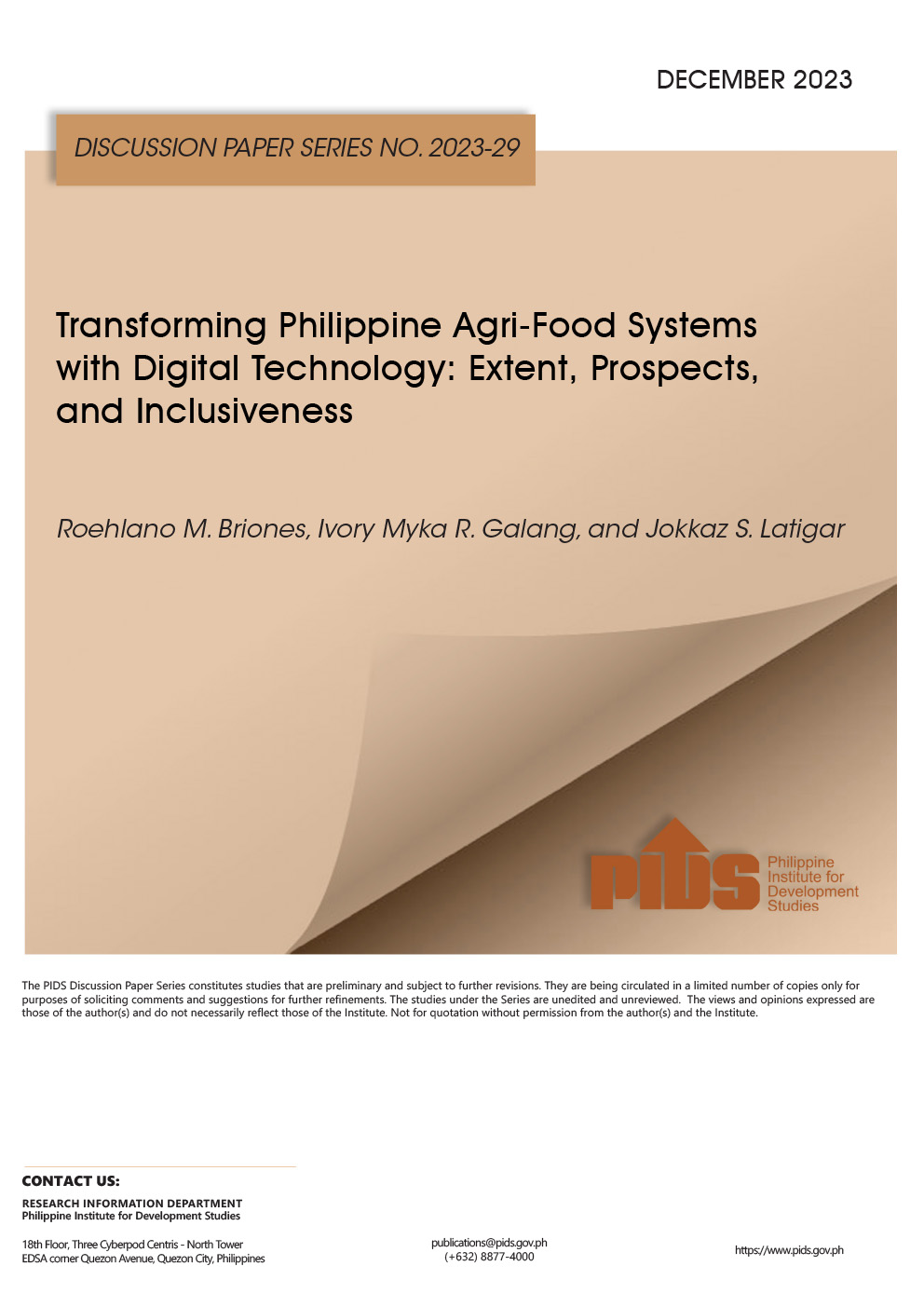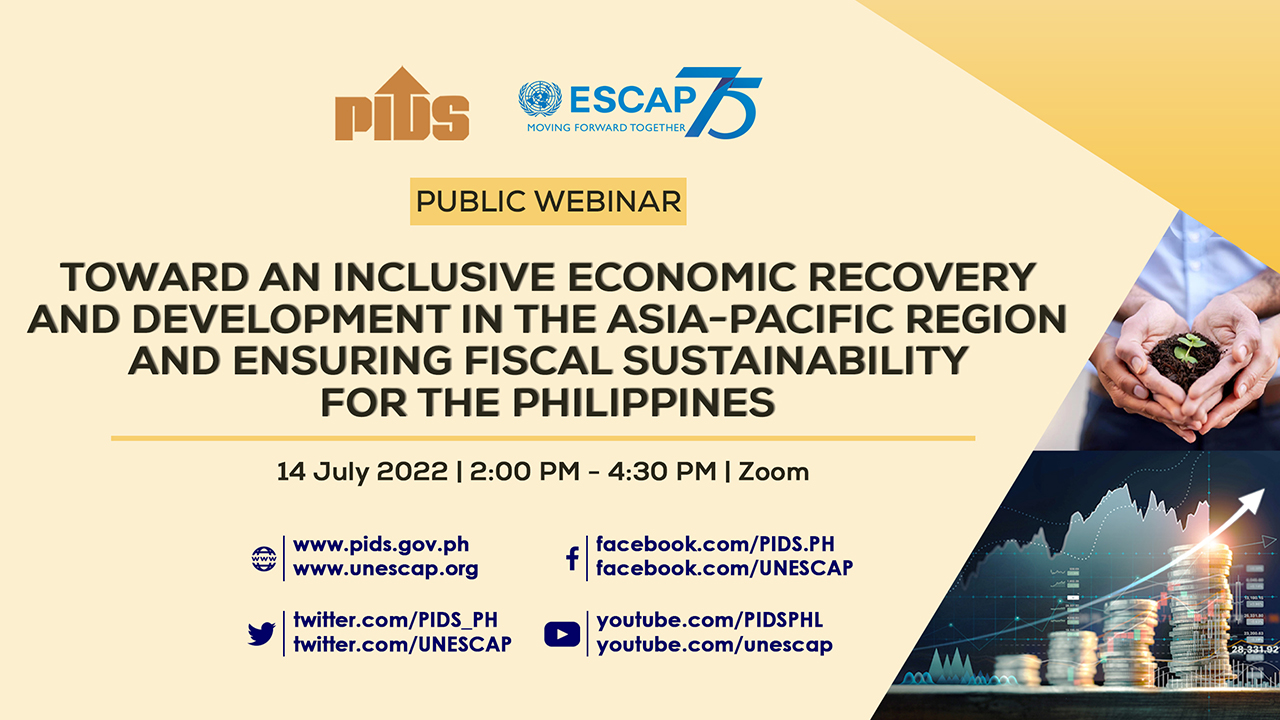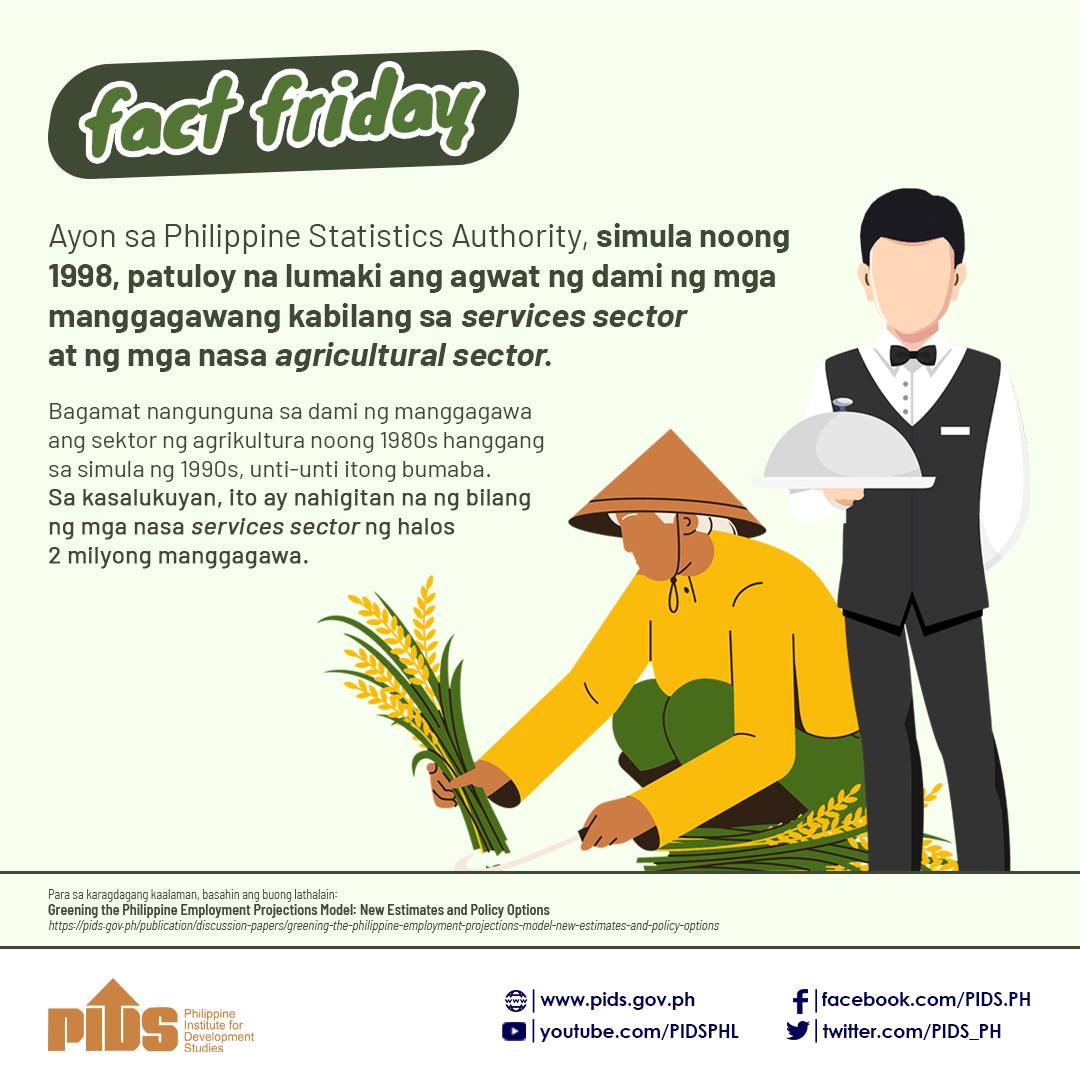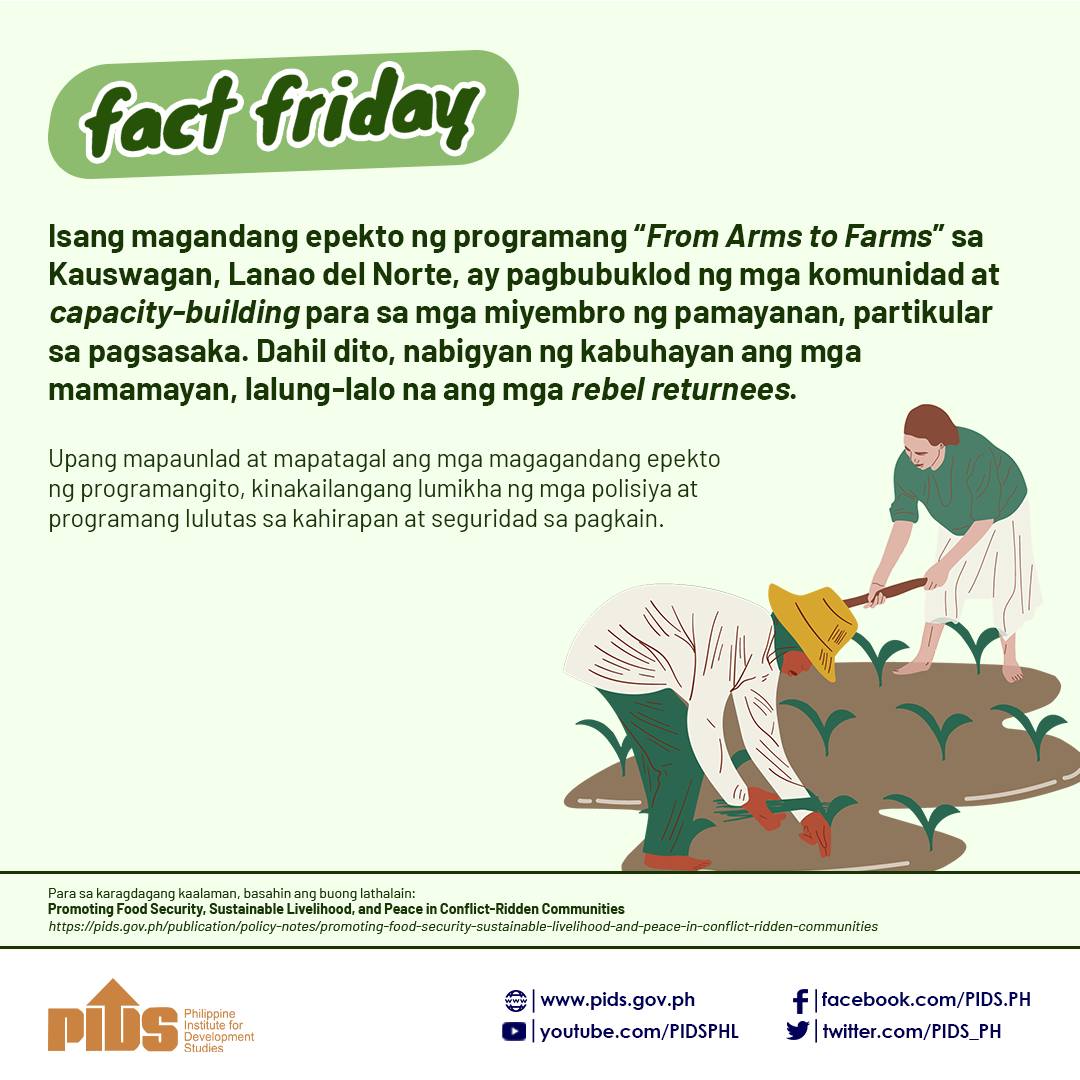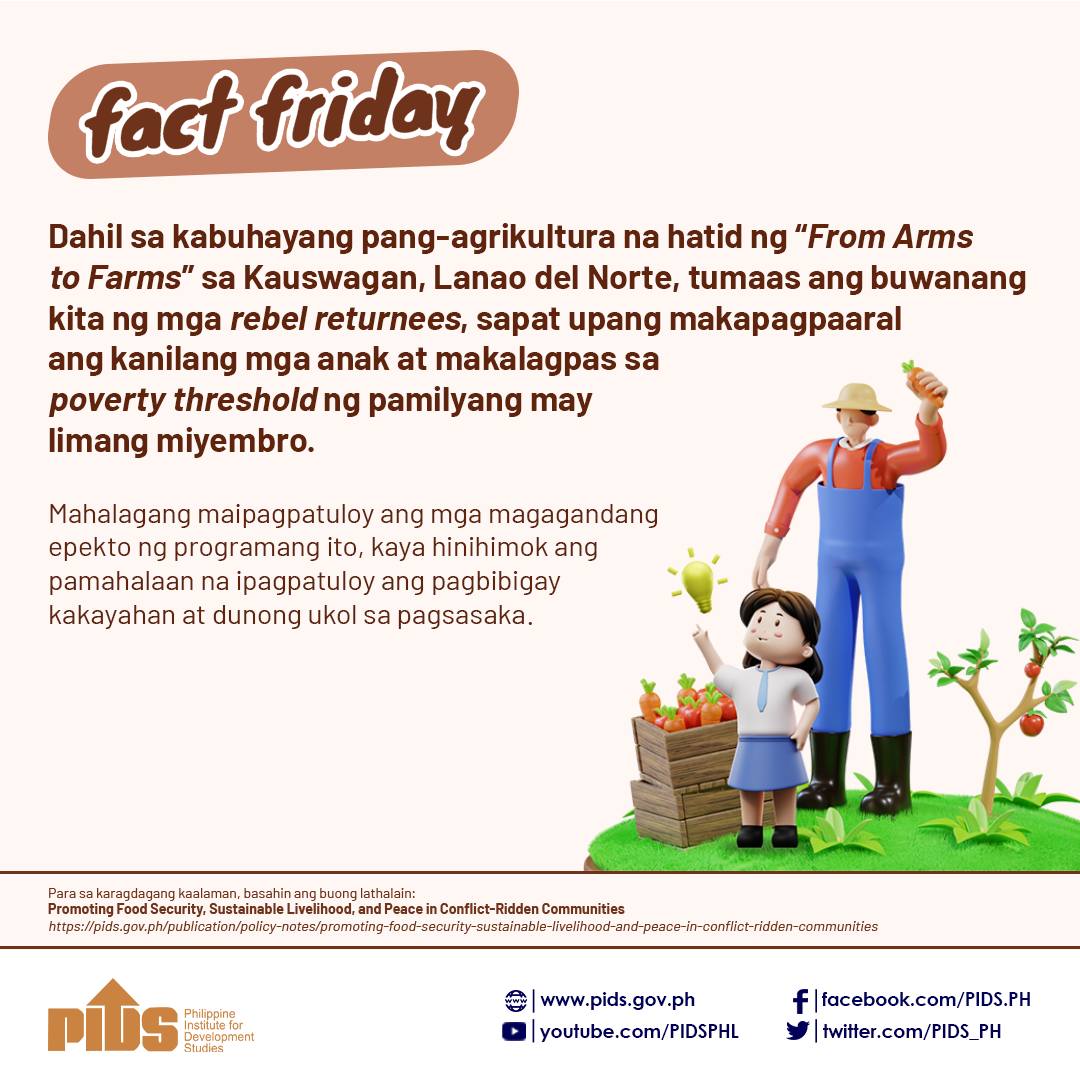
A panel of experts convened at an agricultural conference led by the Philippine Institute for Development Studies (PIDS) to discuss critical issues in rural development and agricultural policy.
Peking University Professor Dr. Justin Lin outlined China's successful rural economic transformation and its ongoing revitalization strategies, while University of Hawaii Professor Dr. Jim Roumasset and UP School of Economics Professor Dr. Karl Jandoc examined the complexities of sugar policy in the Philippines and called for adjustments that benefit both consumers and farmers.
The session capped the whole-day conference themed “Agricultural Development for Food Security: Addressing Challenges to Technological Transformation, Sustainability, and Good Governance”, which was held in partnership with the Asian Development Bank (ADB), the Southeast Asian Regional Centre for Graduate Study and Research in Agriculture (SEARCA), and the United Nations Development Programme (UNDP).
Lin, a renowned economist and advocate of new structural economics, provided an overview of China's economic progress from one of the world’s poorest nations to a near high-income economy. “The transition in China started in the sectors where the collective production team was replaced by the household farming system, called the household responsibility system,” Lin shared. “That reform greatly improved the incentives for farmers, and as a result, farm output increased rapidly, and income in rural areas also grew quickly,” he continued. However, he noted that despite significant growth, rural areas still face disparities in income and living standards compared to urban areas.
Building on China's success, Lin outlined the key components of the Chinese government's Rural Revitalization Strategy. Launched in 2017, the strategy aims to address the economic, environmental, and social challenges of rural life through five key pillars: economic dynamism, ecological balance, social harmony, effective governance, and prosperity. Lin highlighted the strategy's focus on fostering sustainable growth based on the competitive advantages of each region, with economic development centered on local resources such as crops, manufacturing, or tourism. He also stressed the vital role of governance in ensuring efficient markets and supporting new sectors through targeted industrial policies, which ultimately contribute to both social harmony and prosperity.
Following Lin's presentation, Roumasset and Jandoc turned their attention to the sugar policy in the Philippines. They scrutinized the inefficiencies of the country’s current system, where existing quotas and tariffs inflate consumer prices without sufficiently benefiting local farmers. “Farmers only benefit from about 82% of the tariff protection, meaning they are still significantly impacted by these restrictions,” Jandoc explained. He proposed shifting to a tariff-based system, which could bring align consumer prices with international levels, benefiting both consumers and farmers by redistributing gains more effectively. According to their analysis, the current sugar policy imposes an economic cost of over 60 billion pesos annually, primarily due to market inefficiencies.
Roumasset further examined how the approach to agricultural policy analysis has evolved. “Previously, we relied on narrow production metrics, but a public economics approach reveals the broader social impacts of these policies,” he noted. While protectionist measures are often politically popular, Roumasset emphasized that they create unintended economic costs, especially for low-income consumers. To address these issues, both Roumasset and Jandoc underscored the need for liberalization and targeted competition policies to drive meaningful change.
Drawing inspiration from the works of Dr. Tina David, former PIDS Senior Research Fellow, the session reflected on her legacy in promoting balanced and equitable agricultural policies across Asia. David’s pioneering research in agricultural economics continues to guide efforts to create policies that benefit both consumers and producers alike.
Watch the recording of the conference here: https://bit.ly/pidslive110624-Agri.


